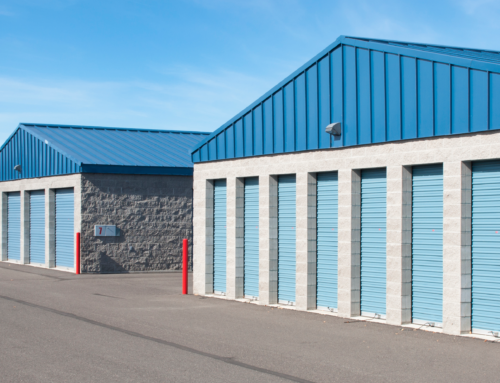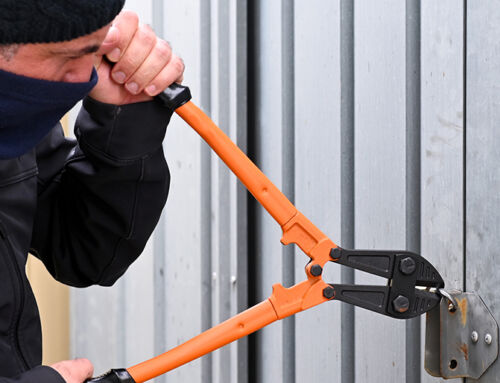Navigating the auto parts industry can be a thrilling yet challenging endeavor. Whether you’re running a small shop or a large wholesale operation, you likely manage thousands of parts in stock, provide installation services, and consult on parts compatibility. Customer satisfaction, inventory management, and employee safety are key responsibilities. You sell parts, from sparkplugs to alternators, and offer valuable expertise. Some parts may be rare or specific to certain models; others may be highly valuable, making your business a prime target for theft or liability if the wrong part is installed. A single faulty part or installation issue could result in liability claims, reputational damage, or financial loss.
What type of insurance do auto parts dealers need?
A critical yet often overlooked aspect of running an auto parts business is securing the right insurance. Whether you’re selling parts for cars, trucks, motorcycles, RVs, or powersports vehicles, a tailored insurance policy can help protect your inventory, customers, and business operations.
Auto parts dealers also face challenges like supply chain delays, discontinued parts, or vehicle-specific recalls. Having blanket protection ensures you’re covered no matter the disruption.
What risks do auto parts dealers face?
Auto parts businesses face a wide range of risks. Here are some of the most common risks:
Theft, vandalism, and property damage
Auto parts, especially high-demand items like catalytic converters or rare components, are often targeted for theft. Vandalism or natural disasters like fires, and floods, and risks such as electrical fires or plumbing issues can also cause damage to your property, equipment, and inventory.
Regular maintenance of your electrical and plumbing systems and adequate fire suppression systems can help minimize property damage and contribute to a quicker recovery from such incidents.
Implement security measures like surveillance systems, secure storage solutions, motion-activated lighting, and physical barriers such as fencing and robust locks, and alarm systems.
- Commercial property insurance helps cover losses related to physical assets such as buildings, equipment, and inventory, that are caused by perils such as fire, water damage, natural disasters, theft, and vandalism.
- Business interruption insurance helps cover lost income and operating expenses if your business is temporarily unable to operate due to an insured event. This type of insurance ensures that you can maintain financial stability while you work to get your business back on its feet.
Customer injuries
Accidents can happen, even with the best safety measures in place, such as customers tripping over misplaced items or suffering injuries from a defective part. Conducting regular safety audits and maintaining clear, visible signage can help mitigate these risks, potentially reducing the risk of injuries and protecting your business from liability claims.
- Commercial general liability insurance (CGL) helps cover bodily injury and property damage claims, helping protect your business from financial losses and legal complications. Whether it’s a slip-and-fall incident in your store or a customer claiming damage caused by a part they purchased from your store, CGL insurance can help protect you from substantial financial losses and legal complications.
Defective parts or installation errors
If a part fails after being sold or installed, the dealer can be held responsible, especially if it leads to vehicle damage or injury, and if the part was installed at their shop.
- Product liability insurance can help cover claims related to defective, damaged, or malfunctioning products.
Professional liability
As an expert in your field, you might also provide consultation and advice to customers, helping to troubleshoot problems, identify which parts are needed for specific makes, models, and years, and recommend the right solution for a customer’s needs.
If a customer claims a salesperson gave them the wrong advice — say, they bought the wrong part, which created a bigger issue with their vehicle — they could threaten to sue you for providing faulty advice.
- Professional liability insurance, sometimes referred to as errors and omissions (E&O) insurance, can help cover legal costs tied to incorrect advice or installation errors.
- A mechanic’s warranty of work can help cover the cost to correct faulty work or install defects that may arise during service.
Environmental hazards and pollution
Auto parts dealers often handle materials that can be hazardous to the environment if not disposed of properly, such as used motor oil, lubricants, coolants, and tires. An accidental spill or incorrect disposal that results in contamination could result in expensive cleanup costs. Plus, you could be on the hook for environmental remediation.
- Pollution liability insurance can help cover cleanup costs and fines if pollution is caused by your operations.
Vehicle related risks during service
If your business installs auto parts or works on vehicles such as aftermarket remote starters, audio systems, and alarm systems, damage may occur during service or test drives.
- Garage liability insurance is an optional coverage for auto parts dealers that can help protect against liability related to any accidental damage while working on customer vehicles.
- Customers’ vehicles coverage can help cover physical damage and liability for customer vehicles in your care, custody, or control.
Cybersecurity threats
In today’s digital age, auto parts dealers are increasingly reliant on technology for everything from inventory management to customer transactions. This dependence makes them vulnerable to cyber threats, which can result in data breaches, theft of sensitive customer information, and significant financial losses. Cyber-attacks can disrupt operations and damage your business’ reputation, leading to a loss of customer trust.
Implementing up-to-date cybersecurity measures such as encrypted networks and providing regular security training to your employees on the latest security practices can help protect sensitive data and prevent significant disruptions from cyber threats.
- Cyber insurance provides coverage for data breaches, cyber-attacks, and other digital threats, and can help cover costs related to data recovery, legal fees, and customer notification.
Employee theft or fraud
Unfortunately, internal theft or forgery can also hurt your bottom line.
- Federated offers insurance coverage that can help protect against employee dishonesty, fraud, forgery, and other criminal activities.
Protect your auto parts dealership with the right insurance
While preventive measures can help mitigate risks, sometimes things can still go wrong. It’s vital to complement these strategies with robust insurance coverage. To learn more about how to protect your auto parts dealership, visit our automotive dealers insurance page today!
This blog is provided for information only and is not a substitute for professional advice. We make no representations or warranties regarding the accuracy or completeness of the information and will not be responsible for any loss arising out of reliance on the information.






